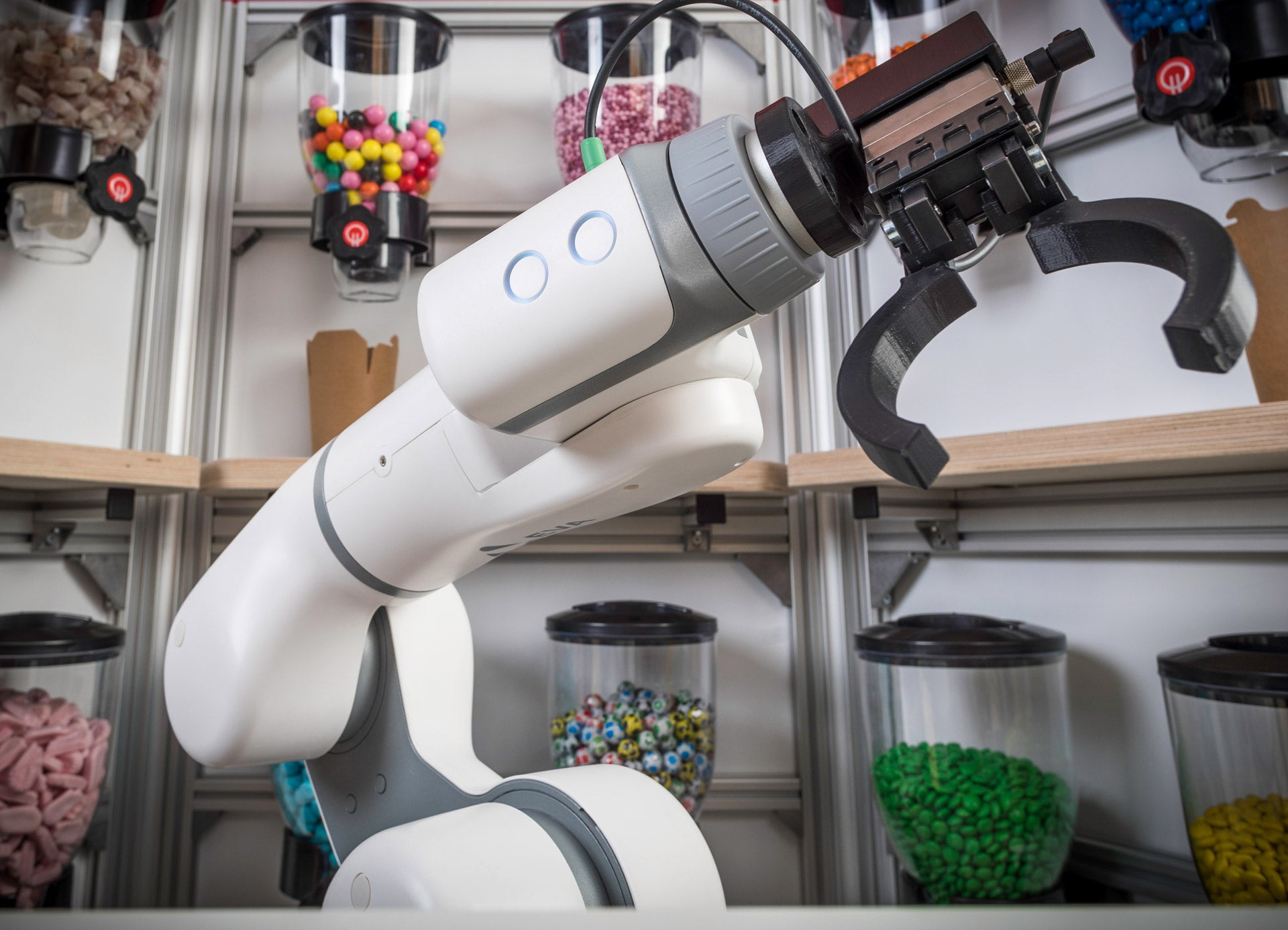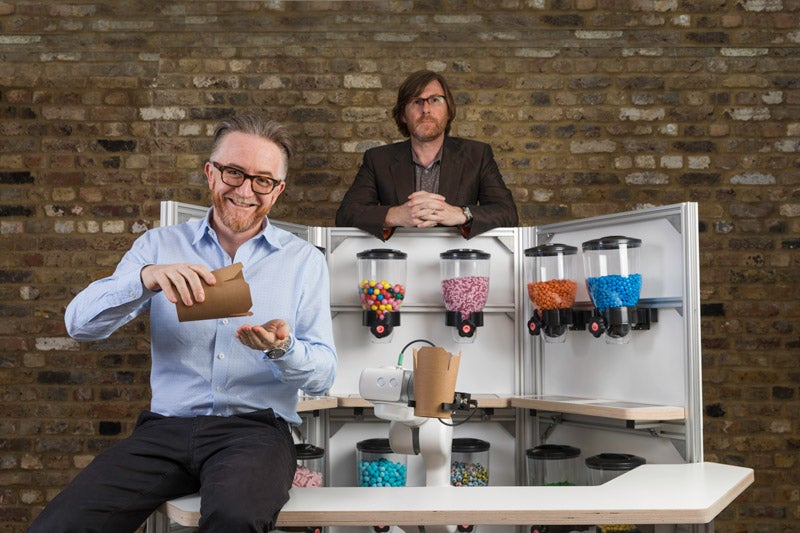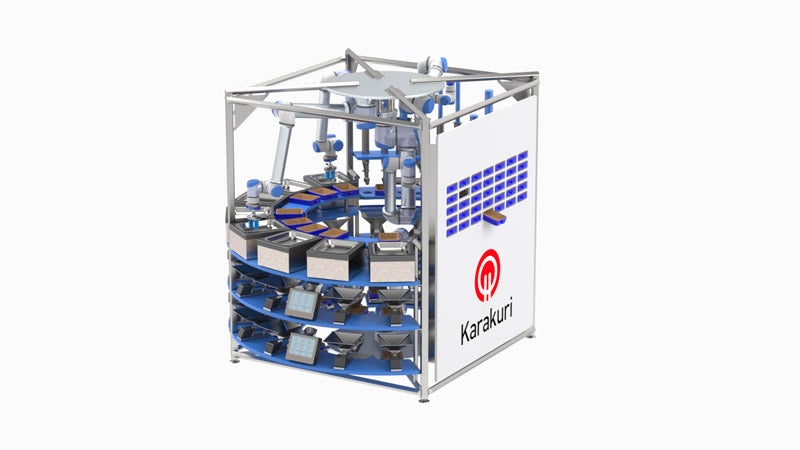
Robots could soon be a common sight in restaurant and café kitchens thanks to Karakuri, a British robotics startup making it possible to provide custom food on an unprecedented scale.
From vegan to gluten-free, the number of people with dietary restrictions is higher than ever, with almost two-thirds of people worldwide eating a diet with limitations on permitted ingredients.
For restaurants, this poses a problem. While many will offer some meals that are suitable for different diets, being able to tailor every dish to precise dietary needs and portion size preferences is simply not possible for the vast majority of kitchens.
Karakuri plans to change this with a selection of robots that can rapidly dispense exact hot or cold ingredients and quantities for each individual dish, laying them out as a finished meal or ready for a chef to prepare.
Its larger model, the DK-One, works at high volumes, with the ability to produce up to 360 meals an hour, at a rate of one every 10 seconds. And there are even plans for a robot that can handle the cooking process too.

How Karakuri robots can help restaurants
For restaurants, particularly those handling high volumes, Karakuri presents an opportunity to not only transform how they can cater to customers, but reduce food and packaging waste in the process.
How well do you really know your competitors?
Access the most comprehensive Company Profiles on the market, powered by GlobalData. Save hours of research. Gain competitive edge.

Thank you!
Your download email will arrive shortly
Not ready to buy yet? Download a free sample
We are confident about the unique quality of our Company Profiles. However, we want you to make the most beneficial decision for your business, so we offer a free sample that you can download by submitting the below form
By GlobalData“Consumer eating habits in and out of the home are changing rapidly as demand increases for healthier options that match specific dietary requirements. This growth in menu personalisation is putting huge pressure on restaurants, cafes and other food retailers. These providers have historically relied on identically mass produced meals to maintain their profit margins,” explained Barney Wragg, CEO and co-founder of Karakuri
“By using robotics and machine learning, Karakuri’s systems provide localised micro-manufacturing within an existing restaurant, retail or commercial kitchen. Our systems prepare personalised meals onsite in real time to the exact requirements of each customer. At the same time, our technology aims to minimise food waste, packaging and distribution costs and all of the associated environmental impact.”

Backing from Ocado
The startup has already attracted serious backing from both the technology and food space.
Having already attracted an advisory board that includes experts from ARM and Bristol Robotics Lab, Karakuri has today announced that it has received £7m seed investment, with funding led by grocery giant Ocado.
The company, which has an impressive track record when it comes to innovative technology, plans to integrate the startup’s robotics into several of its current offerings.
“Ocado is constantly striving to identify the best and most innovative solutions to provide consumers with the greatest possible value, choice and convenience,” said Tim Steiner, CEO of Ocado.
“Our investment in Karakuri, potentially a game-changer in the preparation of food-to-go, gives us the opportunity to bring the best innovation to the benefit of our own customers as well as our partners”.
Read more: Could an AI-powered ‘smart bin’ help reduce food waste at restaurants?




